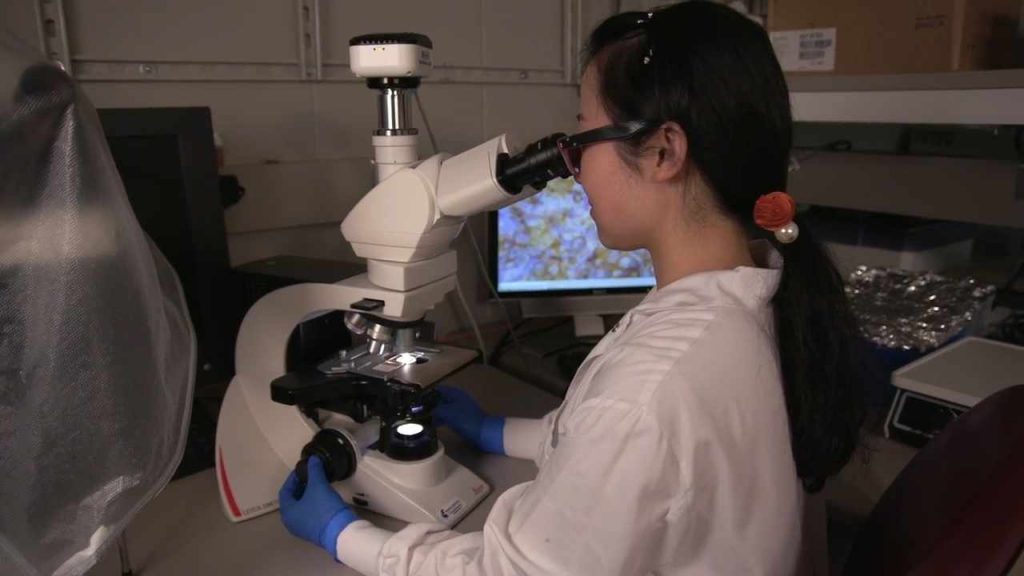-
Cancer
Study finds new way to make chemotherapy more effective against pancreatic cancer

ROCHESTER, Minn. — Pancreatic adenocarcinoma (PDAC) is a lethal malignancy that most often is resistant to chemotherapy. Researchers have been searching for ways to increase the sensitivity of the tumors to cancer-fighting drugs.
A Mayo Clinic-led study published today opens a promising new front in that battle.
Using patient cell lines and tumor-bearing models, researchers found that inhibition of GSK-3, an enzyme involved in many cancer-promoting processes, sensitizes PDAC cell lines to gemcitabine, the most commonly used chemotherapy. They found that GSK-3 inhibitor treatment prevented cancer cells' ability to repair single-strand DNA damage induced by gemcitabine.
The findings, published in Clinical Cancer Research, the journal of the American Association for Cancer Research, suggest that GSK-3 inhibitors may overcome resistance to gemcitabine as well as to other chemotherapies, says Daniel D. Billadeau, Ph.D., a Mayo Clinic researcher whose work focuses on pancreatic cancer.
"Our study identified a previously unknown role for GSK-3 in the regulation of the cell’s ability to respond to and repair its DNA following chemotherapy," says Dr. Billadeau, professor of immunology, biochemistry and molecular biology at Mayo Clinic College of Medicine and Science. "The findings suggest that by inhibiting GSK-3, we can impede the cells' DNA damage response, leading to synergistic tumor cell death even in cells that are naturally resistant to chemotherapy."
PDAC constitutes 93% of pancreatic cancers and is predicted to be the second leading cause of cancer-related deaths in the United States by 2030. The 5-year relative survival rate of PDAC patients is less than 10%.
In this study, pancreatic cancer cell lines and patient-derived tumor samples were treated with a new GSK-3 inhibitor, called 9-ING-41, alone or in combination with chemotherapy. Researchers found that the GSK-3 inhibitor significantly increased pancreatic tumor cancer cell death and prolonged survival in tumor-bearing models when combined with chemotherapy.
"Many pancreatic cancer tumors are resistant to the two most commonly used chemotherapies," says Li Ding, Ph.D., a Mayo Clinic senior research fellow and the study's lead author. "Thus, identifying ways in which to make resistant tumors sensitive, or to increase the effectiveness of chemotherapy, is vital."
The GSK-3 inhibitor used in this study is in a Phase 1a/1b clinical study at Mayo Clinic, and the results from this study are highly relevant to that work, Dr. Ding says.
Dr. Billadeau and co-author Andrey Ugolkov, M.D., have ownership interests in and are consultants and/or advisory board members at Actuate Therapeutics Inc. Co-authors Francis Giles, M.D., and Alan Kozikowski, Ph.D., have ownership interests at Actuate Therapeutics. Kozikowski also has ownership interests in StarWise Therapeutics. Co-author Daniel Schmitt is an employee of and has ownership interests at Actuate Therapeutics, and co-author Andrew Mazar, Ph.D., is a consultant/advisory board member at Actuate Therapeutics.
###
About Mayo Clinic
Mayo Clinic is a nonprofit organization committed to innovation in clinical practice, education and research, and providing compassion, expertise and answers to everyone who needs healing. Visit the Mayo Clinic News Network for additional Mayo Clinic news and An Inside Look at Mayo Clinic for more information about Mayo.
Media contacts:
- Joe Dangor, Mayo Clinic Public Affairs, 507-284-5005, newsbureau@mayo.edu







